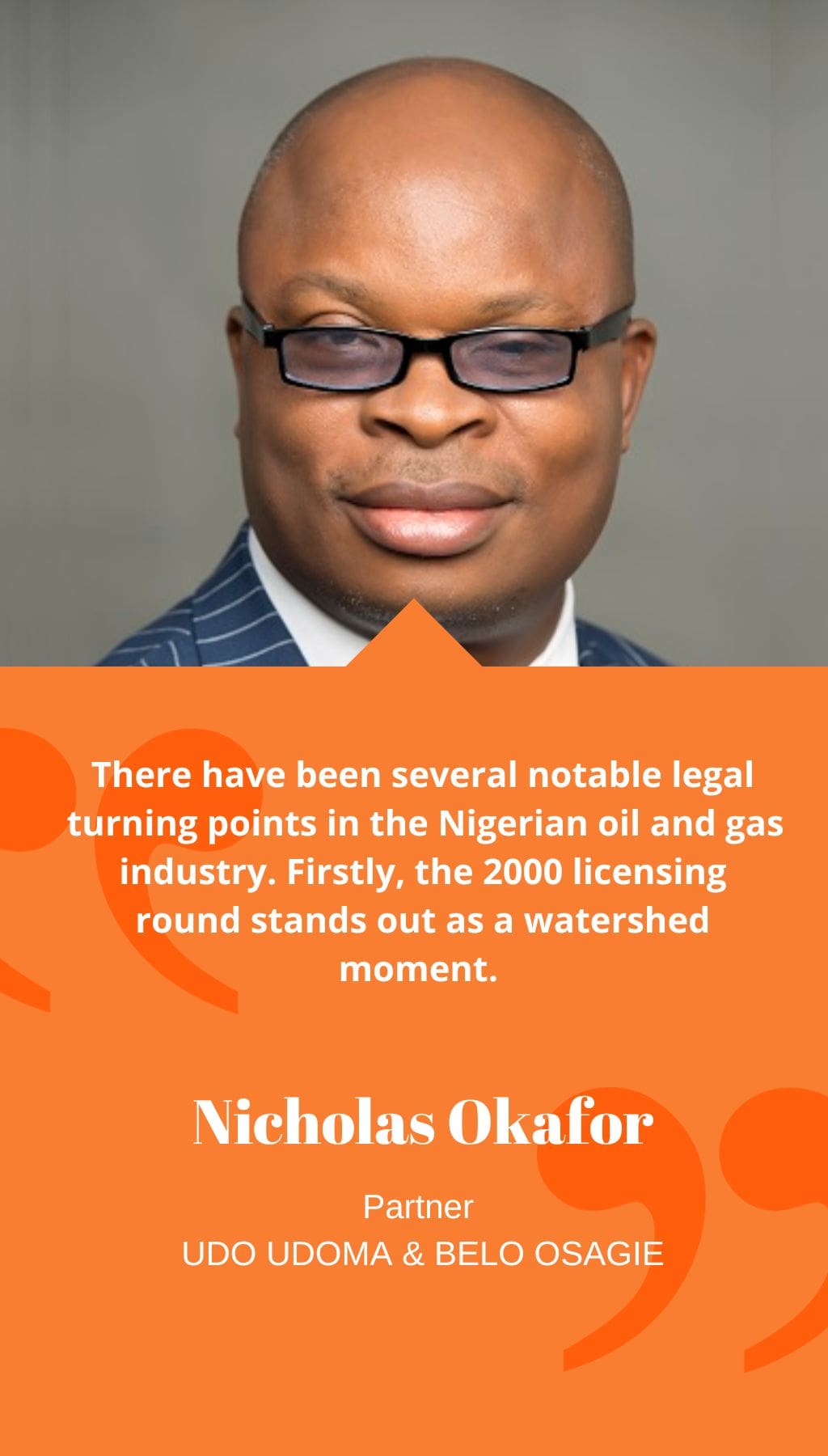
- Nigeria | 26 June 2020

Can you provide an overview of Udo Udoma & Belo Osagie and highlight key factors that have contributed to the company’s growth over the years?
Udo Udoma & Belo Osagie is a prominent Nigerian corporate and commercial law firm that was established in 1983. Its founder, Udoma Udo Udoma, played a vital role in the formulation and implementation of policy for Nigerian natural oil and gas projects during the early years. The firm was actively involved in drafting gas legislation and worked closely with stakeholders when the Nigerian government sought to develop the Petroleum Industry Bill (PIB). Udo Udoma & Belo Osagie covers the entire spectrum of the oil and gas industry, including upstream, midstream, downstream, field development, licenses, and regulatory policies. Their expertise extends to gas pipeline infrastructure, gas processing facilities, and the development of oil wells.
The company’s growth can be attributed to visionary leadership, the presence of excellent partners, and a corporate environment that prevents the practice from becoming personalized.
In your opinion, what have been the significant legal milestones in the Nigerian oil and gas industry thus far?
There have been several notable legal turning points in the Nigerian oil and gas industry. Firstly, the 2000 licensing round stands out as a watershed moment. The process was transparent and adhered to international standards. Another pivotal moment was the enactment of the Deep Offshore and Inland Basin Production Sharing Contract Statute in 2004. This agreement outlined the allocation of resources between the government and other parties involved. The fiscal structure established by this statute allowed companies to recover costs early and encouraged exploration risks in the deep offshore basin.
Additionally, the divestment of integrated operating centers (IOCs) from onshore and swamp fields played a significant role. The government compelled IOCs to allow indigenous operators to acquire some marginal fields. Subsequently, some of these fields commenced production after the concessions were granted. The involvement of local players in these oil fields and the enactment of local content legislation for the oil and gas industry proved to be game-changers.
Furthermore, the Nigerian government has made efforts to separate gas utilization from oil, but progress has been hindered by the delay in enacting the Petroleum Industry Bill. Currently, there is no specific gas legislation that clearly addresses exploration, licensing, production, and monetization of gas. The absence of such legislation underscores the urgency for the PIB’s enactment. From 2005 to 2008, the national regulatory board made attempts to develop a distinct fiscal framework for regulating gas prices in the domestic market.
How does the concept of local content address the concerns of host communities in the Niger Delta?
Addressing the concerns of host communities in the Niger Delta through local content is a complex issue. Some community leaders have entered into relationships with international companies, who promise to provide development initiatives for these communities. Unfortunately, the implementation of such promises has been lacking. While some IOCs claim to have built hospitals and town halls, there are varying accounts of their actual impact. The challenge lies in determining the most effective program to ensure that host communities benefit in terms of infrastructure development, environmental management, and the well-being of their residents. Should the focus be on constructing hospitals, or should there be greater involvement of local communities to ensure adherence to environmental guidelines?
There is no denying the environmental degradation in the Niger Delta, evidenced by issues such as acid rain, depleted fish populations, and highly toxic swamp areas. To address these challenges, stakeholders need to come together and agree on an acceptable plan. IOCs are required to contribute a percentage of their profits to the Niger Delta Development Commission Board (NDDC). However, there are concerns about how these funds are administered to ensure that host communities truly feel the impact. The NDDC has raised complaints regarding the insufficient funds received from the government.
Do you believe that the provision in the PIB, which mandates 10% of profits to go to host communities, will effectively address this issue?
I don’t believe that solely allocating 10% of profits to host communities as equity rights in these businesses will resolve the problem. Some IOCs have previously claimed that certain community leaders benefit from these funds. To ensure effective resolution, it is necessary to establish an investment-friendly arrangement that ensures the implementation of specific plans in each community, involving both IOCs and local communities. Furthermore, a separate regulatory body should be responsible for administering these funds.
What is your vision for Udo Udoma & Belo Osagie in the next five years?
In the next five years, Udo Udoma & Belo Osagie aims to maintain its position as a leading law firm for energy practice in Nigeria. We will continue to collaborate with clients, businesses, and the government to develop policies that foster an investment-friendly environment. Regardless of a country’s natural resources, attracting investment and effectively monetizing those resources require supportive policies. Our firm will continue to support stakeholders, influence policy development, and provide advice to businesses, ensuring the implementation of favorable policies that drive progress in the energy sector.














